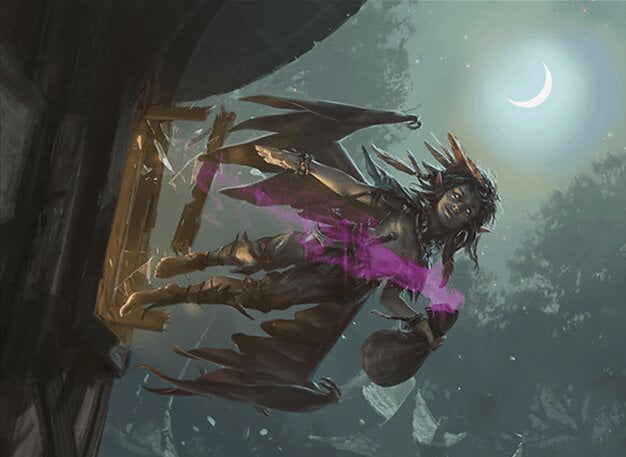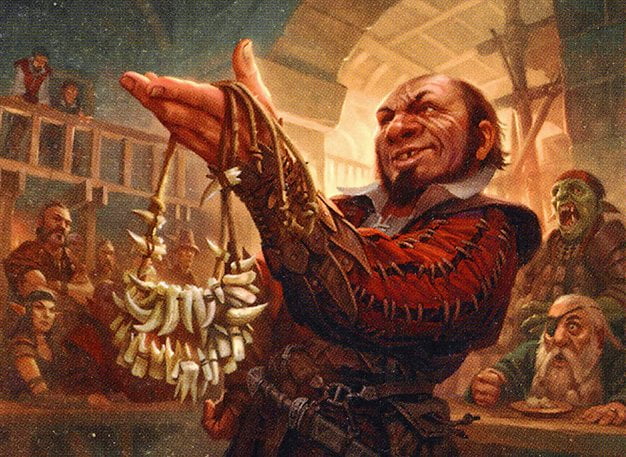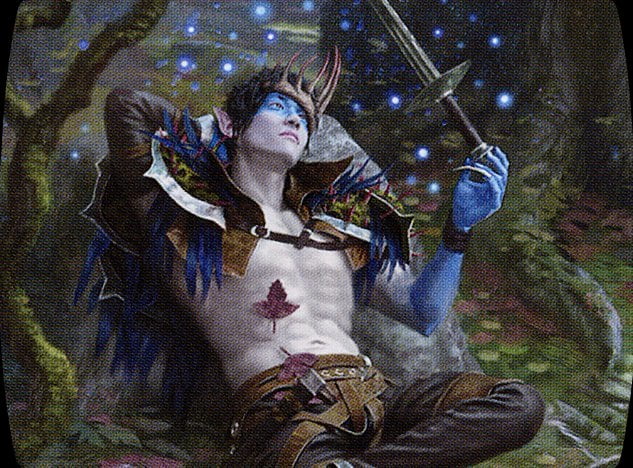Should you ‘steal’ Magic: The Gathering?
How do you ‘steal’ Magic: The Gathering?
I don’t mean cards, mind you. Magic: The Gathering cards aren’t things you should steal, because those cards are physical objects, and one of the best things about them is that they have humans who own them as property, or are responsible for them to a business. That’s a good thing because it means that there’s no central authority determining who does or does not own the cards, and therefore, the act of theft is a simple matter of checking ownership. But Magic: The Gathering cards aren’t Magic: The Gathering.
They’re just game objects. They are material objects that aid in the memory of the experience of playing the game Magic: The Gathering. They are pretty important for it — the game is extremely complicated and involves remembering a lot of complicated systems all moving in relationship to one another. It’s why the cards — typically — have text on them to remind you what they do and how they alter the game states.
We had a recent fuss about the theft of Magic: The Gathering cards. There was a heist at GenCon, of unopened product that represented about $300,000 in cash. That was a lot of stolen Magic: The Gathering cards, and represented the kind of sums that people get really scared about. As a heist fan, I feel bad including this kind of theft in ‘heist,’ but you know what I mean, it’s a lowering of the bar.
What about earlier this year when Wizards of the Coast sent the fucking Pinkertons to intimidate a person who made a video leaking card information ahead of time. Was that because that person was stealing Magic: The Gathering? I mean, literally no – after all, recovering the product didn’t un-spoil the cards. That was about sharing information about cards that weren’t yet available for purchase. This information was something that Wizards wanted to release on their schedule through their avenues —
And I will say, whether or not that’s a valid or acceptable complaint? That’s its own conversation. Not really my interest, honestly, because it seems pretty settled to me that releasing card info ahead of time in a way that hurts content creators does indeed, yes hurt content creators, but then again, those content creators’ job is functionally marketer,
— and then that was taken away from them. But was that theft? It didn’t involve taking something away from Wizards. It didn’t deprive anyone of the Magic: The Gathering game.
I haven’t played Magic: The Gathering using standardised pieces and a second player since 2019. I’ve been playing it non-stop every day, because I log onto a subreddit and make up or share a custom card. These cards use art I don’t have the rights to use, and I’m not putting them in sleeves and playing them with other players. But I am, in a way, playing with Magic: The Gathering.
I am playing with the game pieces in my mind and imagining what I do and what games might look like, or how they might work in a different positions. I am literally playing with these pieces, I am running scenarios with the games, and the code of the game, but in a way that doesn’t even need to involve the mechanisms of the game as played.
Custom cards are made using a rules language, a rules structure, that we didn’t make, and is technically in a lot of cases, under patent in bits to the Wizards legal team. Patents that, I understand, are really not going to do anything when the time comes to test them (which will be never (because they know they won’t do anything)). But the thing is, Magic: The Gathering isn’t mine to make game expansions for, and Wizards of the Coast never gave me explicit permission to do so. They’re not going to stop me, or anyone else doing it, because they can’t. It’s a well-established ordinance that you can’t copyright game methods. Rules aren’t, themselves, inherently copyrightable, though the individual expression of a ruleset is. The comprehensive rulebook is a copyrighted document but if you rewrote every rule and changed all the terms and used your own words, you’d have the copyright on that.
I can’t imagine why you’d do that, that seems very silly, but it is, nonetheless, a thing you could do.
Am I stealing Magic: The Gathering?
And if so, from whom?
Back when Magic: The Gathering was a lot newer than it is today, around the time of Mirrodin-era standard, I entertained the idea of using money from my first job to actually make and play competitive Magic. I tried out FNM and I even went to an Extended PTQ, playing the best deck I could put together with the tools I had. I didn’t do very well at all, but a friend of mine wound up going to the Pro Tour which was nice for him.
(I understand.)
During this time, I had a bunch of decks of the existing standard metagame, made up and sleeved up. I had a few Vintage decks too, all sleeved up for play too. They were all constructed for me to playtest with, so that when I was playing the standard deck I had, I had some reps in with the opponent’s cards.
I had a copy of Tooth and Nail, and I was playing it against Ravager Affinity. This was to say that I was playing a very rough, very hard deck to play, against an amazingly powerful deck that was less hard to play.
Most of these decks, aside from the one I played in tournaments, were 100% proxied. They were made using existing cards I owned and the new card name scribbled on them. This was a way to use cards that never saw use for something. I was, however, playing Magic Decks that I did not, officially, or really, own. Just like how if you play Magic: The Gathering Online you are not playing with Magic cards you own, but licensing for a temporary time.
The barrier to entry of cost is a thing that Magic: The Gathering has. But it only has it if you let it have it. If you play with proxied cards, you are defraying that cost, in exchange for excluding yourself from experiences where those proxied cards aren’t allowed. But you don’t have to disallow them. You can just ask people. Most of the time, most games of Magic aren’t about a tournament enforcer. They’re with people.
What I’m saying is print your own proxies and make them pretty and if anyone has a problem with it, ask them if what they really mean is ‘I think of price as a real barrier to entry to keep me from having to deal with the decks I don’t want to play against,’ because the solution to that is just asking people to play something they like to play against more. And hell, that’s made easier if decks are cheaper to proxy.




